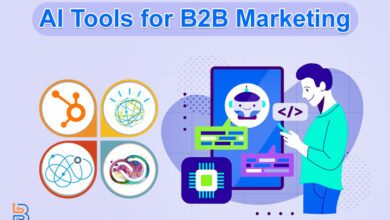How AI is Making a Major Splash Across the Healthcare Industry
In the past few years, the popularity of technology has skyrocketed, affecting just about everyone. In particular, OpenAI’s ChatGPT has made way for numerous other text-based AI and image-generating AI to gain notoriety.
While this success in the recreational markets has been more than enough to keep this technology relevant, this has not stopped it from creeping into many commercial markets. Major tech companies like Meta, Google, and Microsoft have not only implemented AI into their business practices, but have gone as far as to create their own AI to compete with ChatGPT.
AI in the Healthcare Industry
One market where AI still hasn’t reached its full potential is AI agents in healthcare. A remarkably low less than 1% of all enterprise software applications have agentic AI as of 2024. But this does mean that AI has very few applications in the market, as the use cases for this technology extend to both front-end and back-end tasks of all kinds. Because of this, it is estimated that software with agentic AI will explode to 33% in just 4 years.
In the healthcare industry, many people think of AI in different ways. Officially, they are any AI system or program that performs autonomously on behalf of a human or agent. Under this definition, most people think of chatbots that they must bypass for a customer service agent. But they are capable of much more when utilized properly. The place where they’ve been making the largest splash is in administrative workflows, especially in the more menial administrative tasks.
Whether you’re a provider group or ambulatory services, you must get the insurance information for each client and verify that their benefits are active. While this is normally time-consuming, you can autonomously verify a client’s insurance information from pictures of an insurance ID card, referral order, or requisition form. Not only is that convenient enough, but it extracts this data and verifies this data by checking the insurance company portal and conducting an AI voice call. Once it compiles all this data, it can estimate the out-of-pocket cost for consumers and more reliability collects data to prevent a claim being denied by the insurance company due to missing data.
Fortunately, AI can find numerous ways to be useful past insurance benefit verification. This can be anything from automating prior authorization requests or automatically processing documents for you. Additionally, it can attempt to uncover hidden payment coverages before they become a problem by only using patient demographics and no person-specific data.
The underlying factor for all these tasks is that most are mandatory for each client, and all are commonplace occurrences in the healthcare industry. By instead turning to AI, these processes go from hours to seconds and free up time for your employees to actually engage the patient and improve the quality of care rendered.
Statistically, healthcare providers that utilize AI agents save over 50 hours per week, achieve cost savings of 40% to 70%, and see an overall revenue increase of 20%. Surveys show that this rapid adoption could be sped up if they check a few boxes. Most important of all, healthcare staff want an AI solution that helps healthcare workers spend less time on administrative duties and frees them up to do their jobs more efficiently. Additionally, they want an AI that is easy to use and has access to reliable data sources.
But selecting the right AI is just as important as where you utilize it. Many of the most popular models are public-facing, which means they have limited access to your company’s private data. Because of this, their responses are much more broad and not as useful to your customers. Not only this, but they might be unable to assist with more niche questions, as they simply do not have the resources to pull from. When you do provide these models data, it also becomes a regulatory concern due to HIPAA laws.
Conclusion
Orbit AI is a seamless solution that will keep you regulatorily compliant while also excelling at what healthcare staff desire the most. These AI agents are designed to streamline operations and enhance the patient experience, saving your team time on the tasks that bog them down. With nothing stopping your team, they can invest time in patient experience and productivity, resulting in greater efficiency and higher revenue for your business.

Source: Orbit Healthcare





